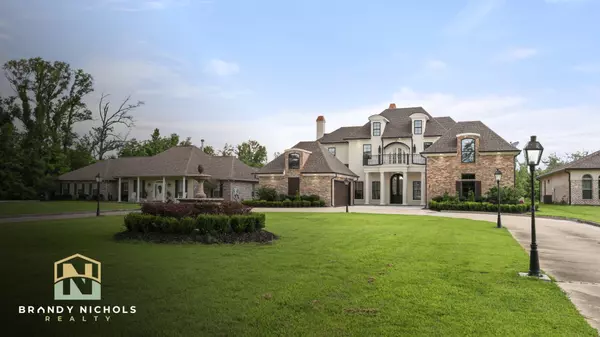

How to Evaluate a Home's Potential for Appreciation
How to Evaluate a Home's Potential for Appreciation When it comes to evaluating a home's potential for appreciation, there are several key factors that buyers should consider. These factors include the neighborhood, lifestyle, and the home itself. By carefully analyzing these aspects, buyers can make an informed decision and potentially benefit from future appreciation. In this blog post, we will explore each of these factors in detail. The neighborhood in which a home is located plays a crucial role in determining its potential for appreciation. Buyers should consider factors such as the proximity to amenities, schools, and transportation options. A neighborhood with well-regarded schools and convenient access to shopping centers, parks, and public transportation is more likely to see appreciation in home values. Additionally, areas with a low crime rate and well-maintained infrastructure are also desirable. Buyers should research the local housing market and consult with real estate professionals to gain insights into the neighborhood's potential for appreciation. Another important aspect to consider is the lifestyle of the area. Buyers should assess the lifestyle amenities available in the neighborhood, such as restaurants, entertainment venues, and recreational facilities. Areas with a vibrant cultural scene and a variety of leisure activities tend to attract residents and contribute to home value appreciation. Additionally, proximity to natural attractions like parks, beaches, or hiking trails can also enhance the desirability of a location. An active and engaging lifestyle often translates to long-term property value growth. Evaluating the home itself is equally critical in determining its potential for appreciation. Buyers should consider factors such as the property's age, condition, and unique features. Older homes may require more maintenance and updates, which can impact their value growth potential. Conversely, newer homes with modern amenities and energy-efficient features are often more attractive to buyers and may appreciate at a faster rate. Buyers should also assess the layout and design of the home to ensure it meets their needs and preferences. A well-designed and functional home is more likely to retain and increase its value over time. Furthermore, it is essential to consider the overall market conditions when evaluating a home's appreciation potential. Real estate markets fluctuate, and factors such as interest rates, supply and demand, and economic conditions can all influence property values. Buyers should research the local market trends, including recent sales data and forecasts, to gain a better understanding of the potential for appreciation in a specific area. Consulting with a real estate agent who has expertise in the local market can be invaluable in assessing market conditions and making informed decisions. In conclusion, evaluating a home's potential for appreciation is a multifaceted process that involves considering the neighborhood, lifestyle, and the home itself. By carefully assessing these factors and staying informed about the local market conditions, buyers can make informed decisions and potentially benefit from future appreciation. Remember, real estate is a long-term investment, so taking the time to evaluate and analyze these factors will help buyers make sound decisions that align with their financial goals.
Read More

The Pros and Cons of Buying a Fixer-Upper
The Pros and Cons of Buying a Fixer-Upper Buying a fixer-upper can be an appealing option for many homebuyers. The idea of purchasing a property that needs some TLC and turning it into your dream home can be exciting. However, it is important to weigh the pros and cons before making such a significant investment. One of the most significant advantages of buying a fixer-upper is the potential for a lower purchase price. These types of properties often have a lower asking price compared to homes in move-in ready condition. This can provide an opportunity for buyers to get into a desirable neighborhood or afford a larger property than they would otherwise be able to. Another advantage is the ability to customize the home to your preferences. When you buy a fixer-upper, you have the freedom to design and renovate the property to suit your taste and needs. This can be a rewarding process for buyers who enjoy remodeling and making a space their own. Investing in a fixer-upper can also present an opportunity to build equity. By purchasing a property at a lower price and investing in renovations, you have the potential to increase the value of the home. When done correctly, this can result in a substantial return on investment if you choose to sell the property in the future. While there are many advantages to buying a fixer-upper, it is essential to consider the potential challenges and downsides. One of the major cons is the amount of time and effort required to renovate the property. Renovations can be time-consuming and may require hiring contractors or managing the work yourself. It is crucial to have a realistic understanding of the amount of work involved and to be prepared for potential delays or unexpected expenses. Another disadvantage is the potential for unforeseen issues. With older homes or properties in need of substantial repairs, there is a higher likelihood of encountering problems such as structural issues, electrical or plumbing problems, or outdated systems. These issues can be costly to fix and may require professional assistance. Financing can also be more challenging when purchasing a fixer-upper. Traditional mortgage lenders may be hesitant to provide a loan for a property in need of significant renovations. However, there are specialized renovation loan programs available that can help finance both the purchase price and the cost of renovations. In conclusion, buying a fixer-upper can be a great opportunity for buyers who are willing to put in the time, effort, and resources to transform a property into their dream home. The potential for a lower purchase price, the ability to customize the space, and the opportunity to build equity are all significant advantages. However, it is essential to carefully consider the potential challenges and downsides, such as the time and effort required for renovations, potential unforeseen issues, and financing difficulties. By weighing the pros and cons, buyers can make an informed decision and ensure that buying a fixer-upper is the right choice for them.
Read More

Eco-Friendly Features to Look for in a home
Eco-Friendly Features to Look For In A Home In today's world, more and more people are becoming conscious about the environment and are actively looking for ways to reduce their carbon footprint. When it comes to buying a home, this mindset has influenced the real estate market, leading to an increased demand for eco-friendly features. These features not only benefit the environment but also add value to the property. In this blog, we will explore some eco-friendly features to look for when buying a home and how they can enhance your lifestyle. One of the most sought-after eco-friendly features in homes is solar panels. Solar panels harness the energy from the sun and convert it into electricity, significantly reducing reliance on traditional energy sources. By utilizing solar power, homeowners can save money on their utility bills while reducing greenhouse gas emissions. When searching for a home, consider properties that already have solar panels installed or have the potential for installation in the future. Another eco-friendly feature to look out for is energy-efficient appliances. These appliances are designed to use less energy compared to their conventional counterparts, resulting in lower electricity consumption and reduced strain on the environment. Look for homes with Energy Star-rated appliances, as they meet strict energy efficiency guidelines set by the Environmental Protection Agency. These appliances can make a significant difference in your energy consumption and help you save money in the long run. Proper insulation is crucial for maintaining an energy-efficient home. Well-insulated homes retain heat during winter and keep cool air inside during summer, reducing the need for excessive heating or cooling. This not only saves energy but also increases comfort levels. Insulation can be found in various forms, such as double-glazed windows, insulated walls, and attic insulation. When inspecting a potential home, pay attention to these features and inquire about their insulation properties. Water conservation is another vital aspect of an eco-friendly home. Look for properties that have low-flow faucets, showerheads, and toilets. These fixtures are designed to use less water without compromising functionality. Additionally, some homes may have rainwater harvesting systems, which collect rainwater and repurpose it for non-potable uses such as watering the garden or flushing toilets. These features help reduce water waste and contribute to a more sustainable lifestyle. An often overlooked eco-friendly feature is the use of sustainable building materials. Look for homes constructed with materials that have been sourced responsibly, such as bamboo flooring, recycled wood, or reclaimed bricks. These materials have a lower environmental impact compared to traditional options and can contribute to healthier indoor air quality. Living in an eco-friendly home goes beyond the physical features; it also encompasses the surrounding community. When searching for a property, consider if it is located in a walkable neighborhood with amenities within close proximity. Access to public transportation, shops, parks, and schools can significantly reduce the need for driving, leading to a lower carbon footprint. Additionally, communities with green spaces and bike lanes promote healthier lifestyles and encourage outdoor activities. In conclusion, when buying a home, it is essential to consider eco-friendly features that align with your values and lifestyle. Solar panels, energy-efficient appliances, proper insulation, water conservation measures, sustainable building materials, and a walkable community are all factors that contribute to a greener and more sustainable living. By investing in an eco-friendly home, not only will you reduce your environmental impact but also enjoy the long-term benefits of lower utility bills and increased property value.
Read More

The Art of Negotiation in Real Estate Transactions
The Art of Negotiation in Real Estate Transactions Negotiation plays a crucial role in real estate transactions. Whether you're a buyer, seller, or investor, having strong negotiation skills can make all the difference in achieving your goals. In this blog, we will delve into the world of real estate negotiation, exploring its importance and providing tips for success. For Buyers: As a buyer, negotiation skills can help you secure the best possible deal on your dream property. It's essential to do thorough research beforehand, understanding the current market conditions and property values in the area. This knowledge will empower you to negotiate from a position of strength. When engaging in negotiations, be clear about your priorities and establish a maximum budget. Remember that negotiation is a give-and-take process, so be prepared to make compromises while also standing your ground on crucial aspects. A skilled negotiator can help you navigate the complexities, ensuring you find a fair deal that aligns with your needs and financial capabilities. For Sellers: Sellers also need to master the art of negotiation to maximize their profits. Your listing price should be well-researched and competitive, allowing room for negotiation while still giving you a favorable outcome. Work with your real estate agent to create a pricing strategy that attracts potential buyers while maintaining your bottom line. During negotiations, be willing to listen to buyers' offers and understand their perspective. Emotions can run high during these discussions, so keeping a level head is crucial. Be open to reasonable counteroffers and consider any concessions that may make the deal more appealing to both parties. Remember, finding a win-win situation is often the key to a successful transaction. For Investors: Investors are constantly engaged in real estate transactions, and negotiation skills are the cornerstone of their success. Whether buying distressed properties, engaging in renovations, or negotiating lease agreements, investors must strike deals that yield high returns. Research and due diligence are essential for investors. Understanding the market, property values, and potential risks will help you negotiate from a position of strength. When dealing with distressed properties or foreclosures, investors can often negotiate significant discounts. However, remember that the negotiation process may differ depending on the seller, such as banks, homeowners, or other investors. When negotiating lease agreements, investors can secure favorable terms by highlighting their track record, demonstrating the potential for long-term tenancy, or offering to make improvements to the property. Investors must maintain a keen eye for opportunities and be skilled negotiators to ensure their real estate endeavors remain profitable. Conclusion: Negotiation is an art that can make or break real estate transactions. Whether you are a buyer, seller, or investor, honing your negotiation skills will give you a competitive edge in the market. Remember to research, prepare, and be open to compromise while also advocating for your best interests. Working with experienced professionals can also provide valuable guidance throughout the negotiation process. In the dynamic world of real estate, negotiation is an essential tool that enables individuals to achieve their goals and secure successful transactions. By mastering this art, you'll be better equipped to navigate the complexities of the market, fostering fruitful partnerships and securing the best possible deals.
Read More
Categories
Recent Posts










